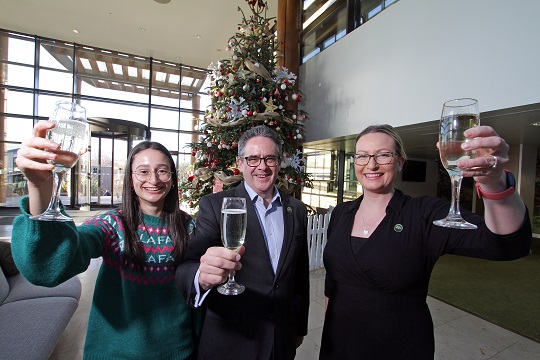Melton Building Society appoint new non-executive director
2023 Business Predictions: Helen Wathall MBE, Wathall’s
Charcon Hard Landscaping wins contract to supply sustainable products to the ongoing redevelopment of Derby City Centre
The Access Group acquires construction management software company
Brendan Flattery, Managing Director Access ERP, said: “We see a huge opportunity with COINS joining the Access Group and we will be sharing more details over the coming months about our joint plans for the future. With the size, complexity and geographical spread of COINS’ operations, we are now in an exciting discovery phase while we integrate our two businesses.”
Robert Brown, COINS CEO, said: “I am excited to be joining my peers at The Access Group and the opportunities that this acquisition creates for our staff, customers, and business partners. Access and COINS share the same vision of delivering a suite of market-leading, end-to-end, construction-focused solutions, that enable construction companies to achieve higher levels of productivity, margin and cash flow.”
Chris Bayne, CEO of The Access Group, said: “This latest acquisition supports our growth strategy and focuses on delivering solutions that meet the needs of our expanding international customer base. We welcome COINS’ customers, partners and employees into The Access Group.”
Bank of England announces ninth rate rise in a row
Games Workshop reveals agreement with Amazon to develop IP into film and TV productions
A Nottingham-headquartered manufacturer and seller of fantasy miniatures has reached an agreement in principle with Amazon, to develop its intellectual property into film and television productions.
The agreement would also see Games Workshop grant Amazon associated merchandising rights.
In advance of contracts being entered into, Amazon will be commencing certain development activities (such as holding preliminary discussions with writers) in order to facilitate the project. It is intended that rights will initially be granted to develop the Warhammer 40,000 universe.
Whilst the parties have reached agreement on material commercial terms, the project is wholly dependent on and subject to contracts being agreed and entered into, which the businesses say they are working towards.












